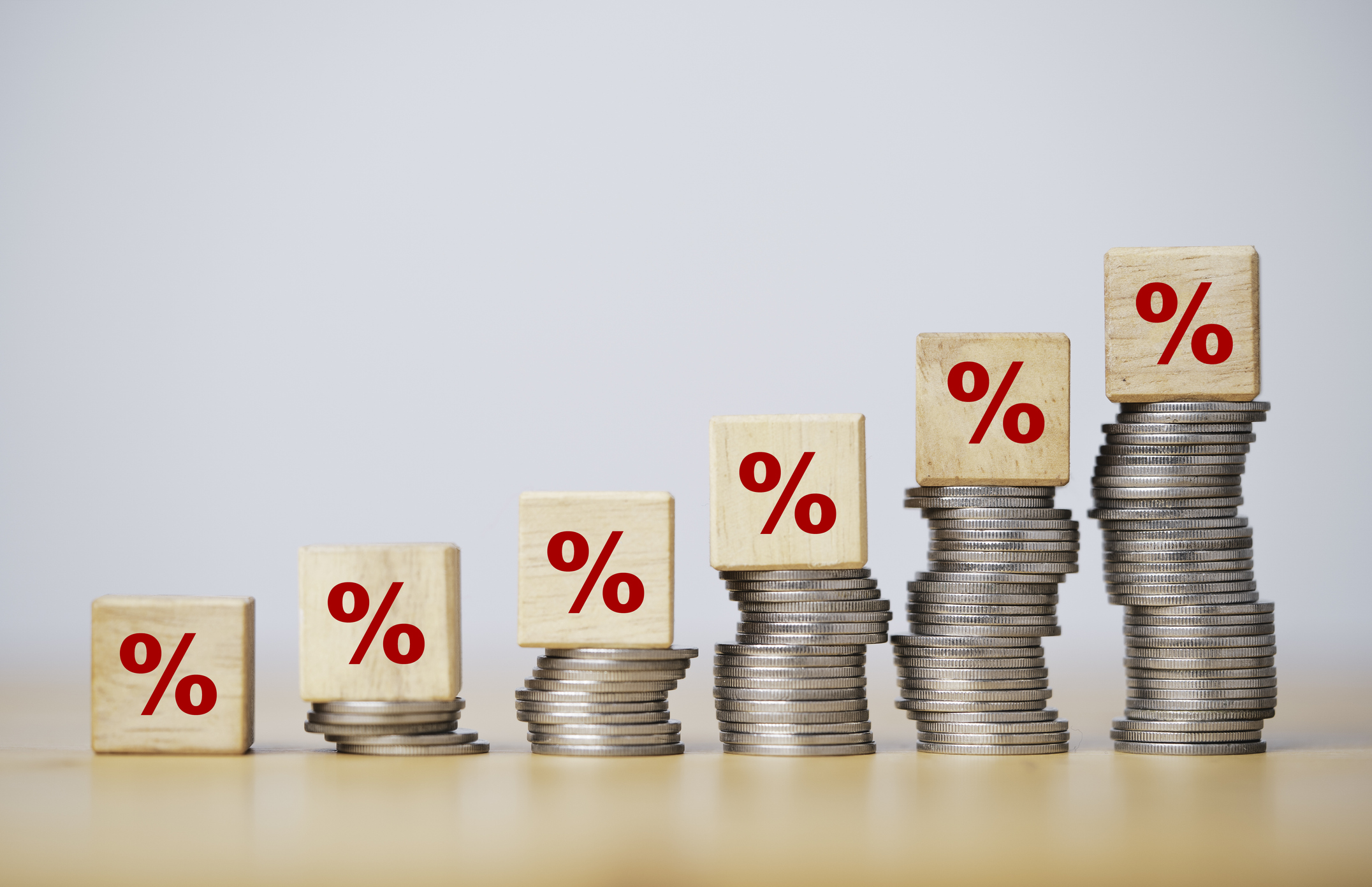Savings market heats up as providers boost rates - should you switch now for a better return?
In a surprising twist, more and more banks are now hiking their savings rates. Is it a good time to move your money and grab a better rate?


Get the latest financial news, insights and expert analysis from our award-winning MoneyWeek team, to help you understand what really matters when it comes to your finances.
You are now subscribed
Your newsletter sign-up was successful
Want to add more newsletters?

Twice daily
MoneyWeek
Get the latest financial news, insights and expert analysis from our award-winning MoneyWeek team, to help you understand what really matters when it comes to your finances.

Four times a week
Look After My Bills
Sign up to our free money-saving newsletter, filled with the latest news and expert advice to help you find the best tips and deals for managing your bills. Start saving today!
The savings market has taken an unexpected turn in the past week with some lenders upping their rates - but how long will these higher returns last?
The good news follows two challenger banks making a surprise uplift to their one-year savings bonds earlier this month.
Many providers had been trimming their savings rates since November, after base rate hikes from the Bank of England came to a halt.
MoneyWeek
Subscribe to MoneyWeek today and get your first six magazine issues absolutely FREE

Sign up to Money Morning
Don't miss the latest investment and personal finances news, market analysis, plus money-saving tips with our free twice-daily newsletter
Don't miss the latest investment and personal finances news, market analysis, plus money-saving tips with our free twice-daily newsletter
Before this, we saw savings rates go way above the Bank’s 5.25% base rate. For example, last year savers enjoyed NS&I’s 6.2% one-year fixed bond (almost 1% more than the base rate) and Paragon Bank’s 5.25% easy-access saver.
According to Rachel Springall, finance expert at comparison site Moneyfacts, “around 99% of savings accounts that pay interest on a £5,000 balance now pay below 5.25%” - but some providers are starting to raise their rates.
Find out which banks are increasing their rates, whether we can expect savings rates to pass 5.25%, and how long these attractive deals will stick around for.
Savings rates on the rise
Amid months of falling savings rates, most experts predicted that savings deals would not return to the dizzy heights of 6.2%, and the chances of any future hikes were slim.
While rates reaching above 6% might still be too optimistic, higher savings rates are still on the cards. MoneyWeek has been tracking the best savings deals and has seen lenders up the rate on three easy-access savings accounts and seven one-year fixed bonds in the past week.
Here are some of the most significant changes:
- Paragon Bank hiked the rate on its double-access savings account from 5.05% to 5.16% AER on 15 February.
- SmartSave upped the rate on its one-year fixed saver from 5.18% to 5.21% AER on 12 February.
- Allica Bank increased its one-year fixed bond rate from 5.15% to 5.2% AER on 12 February.
It’s not the first time we’ve seen savings providers up their rates this close to the base rate.
Before savings deals hit their peak in November, we saw high-street lenders (who are usually notorious for their low savings rates) launch some decent accounts.
Nationwide launched its 8% regular saver back in August, making it the highest-paying savings account on the market. This recently fell to 6.5% AER.
Santander followed with its 5.2% easy-access savings account in September - its best rate on offer in 14 years.
Challengers such as Chase and Starling Bank also increased their rates.
So, the 10 rate increases we have seen in the past week could potentially be a catalyst for more rises, as we saw a similar pattern last year.
Springall says: “There may still be some challenger banks going against the rate-cutting trend, as these brands can increase rates over the shorter term to attract deposits for their future lending.”
But she warns these deals could have a short shelf-life, so you might still have to keep your eye on the ball and act fast to snap up the best rates.
Will savings deals surpass the base rate again?
Even though some savings providers have pushed up their rates and more could follow, experts believe it’s unlikely they will go above the BoE’s base rate.
Kevin Mountford, personal finance expert at savings platform Raisin UK, comments: “Savers should act now to lock in the top rates, and while we don’t expect rates to peak at 6.2%, as we saw from NS&I in November, they are more likely to stick around 5.1% for a little while longer.”
He warns: "Smaller banks often top the best-buy tables to attract new customers. But they usually have limited capacity, so these deals can disappear quickly.”
Sarah Coles, head of personal finance at Hargreaves Lansdown, says the rate increases could be due to savings providers re-adjusting their positions as “the market is pricing for cuts to come slightly later, and further apart than it previously expected. It means some banks that initially cut hard are backtracking and boosting rates.”
But, she says: “I wouldn’t expect a wave of new rates at this level, because the next [base] rate movement is expected to be south.”
So, it may be a case of enjoying the plumper savings rates while they last.
According to Moneyfacts, the average easy-access savings rate is 3.17% and the average one-year fixed bond is 4.59% as of today (19 February).
There are a total of 1,359 savings accounts on the market, excluding ISAs - 136 more than two years ago. About 953 accounts beat inflation.
Get the latest financial news, insights and expert analysis from our award-winning MoneyWeek team, to help you understand what really matters when it comes to your finances.
Vaishali has a background in personal finance and a passion for helping people manage their finances. As a former staff writer for MoneyWeek, Vaishali covered the latest news, trends and insights on property, savings and ISAs.
She also has bylines for the U.S. personal finance site Kiplinger.com and Ideal Home, GoodTo, inews, The Week and the Leicester Mercury.
-
 Should you buy an active ETF?
Should you buy an active ETF?ETFs are often mischaracterised as passive products, but they can be a convenient way to add active management to your portfolio
-
 Power up your pension before 5 April – easy ways to save before the tax year end
Power up your pension before 5 April – easy ways to save before the tax year endWith the end of the tax year looming, pension savers currently have a window to review and maximise what’s going into their retirement funds – we look at how
